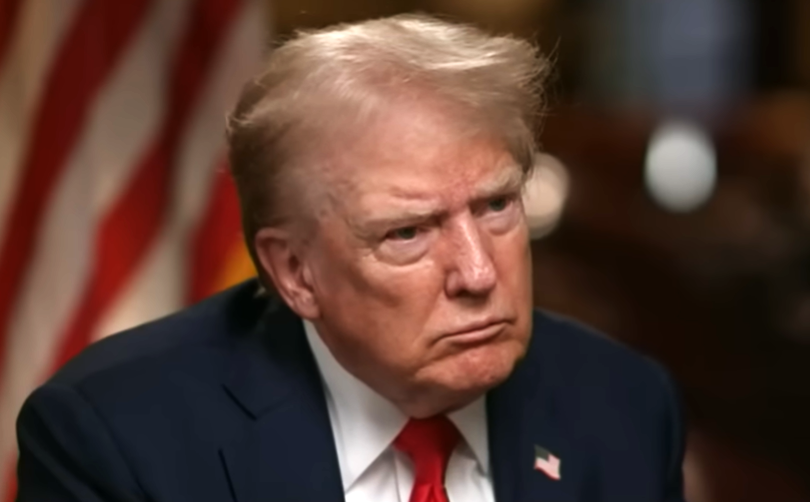
(LifeSiteNews) — Former President Donald Trump stated definitively that if returned to the White House he will not use existing federal law to block the mail distribution of abortion pills, further troubling pro-lifers already struggling with his multiple turns away from the cause over the past year.
During a wide-ranging press conference earlier this month at his Mar-a-Lago resort home, Trump had been asked about the Biden-Harris Food and Drug Administration’s (FDA’s) approval of distributing abortion pills through the mail.
READ: ‘Party of death’: Democrats’ convention includes free abortions and vasectomies
“You could do things that would supplement. Absolutely,” he said. “And those things are pretty open and humane. But you have to be able to have a vote, and all I want to do is give everybody a vote. There are many things on a humane basis that you can do outside of that.”
While not definitive, the answer seemed to shift away from his declaration in June that “the Supreme Court just approved the abortion pill, and I agree with their decision to have done that, and I will not block it.” He had been referring to the Supreme Court’s dismissal of a pro-life challenge to the Biden administration’s abortion pill guidance, which is in clear violation of the 1873 Comstock Act.
However, Trump campaign national press secretary Karoline Leavitt later clarified, “As President Trump said, he wants ‘everybody to vote’ on the issue, reiterating his long-held position of supporting the rights of states to make decisions on abortion (…) As President Trump said numerous times during the press conference, the questions being asked were difficult to hear. His position on mifepristone remains the same — the Supreme Court unanimously decided on the issue and the matter is settled.”
On Monday, CBS News host Caitlin Huey-Burns asked Trump during an interview whether he would enforce the Comstock Act, to which he answered, “No. We will be discussing specifics of it, but generally speaking, no, I would not.”
“Should medication abortion (i.e., abortion pills) be widely available?” Huey-Burns followed up, to which the former president responded, “well, it’s going to be available, and it is now.”
READ: Will Trump or Harris win the presidency? It may depend on socially conservative voters
Politico reported that multiple prominent pro-life figures were frank in their disapproval.
“It is not a pro-life position, it’s not an acceptable position, and it does not provide the contrast on this issue to the degree that we have had in the past between him and Kamala Harris,” Family Research Council president Tony Perkins said. “What President Trump is doing is suppressing his own support.”
“President Trump keeps saying that he wants to be out of the federal business of abortion,” Students for Life of America chief policy strategist Kristi Hamrick said. “So, number one, stop funding it. And, two, end the federal prejudice in favor of this distribution. We can’t ignore the rule of law and pick and choose the laws that we want to enforce. Isn’t everybody’s criticism of the Department of Justice their selective enforcement? So this would be the selective un-enforcement of a law that says these are dangerous drugs and should not be mailed. It’s very problematic for a party that respects the law.”
“Unfortunately, it seems like Trump doesn’t care about the pro-life base anymore,” Live Action founder and leader Lila Rose lamented. “He came out recently and said that he supported access to these deadly abortion drugs, and that is horrific. When Trump is publicly compromising, it’s deeply discouraging to pro-life and pro-family voters, and I think that he’s putting his own election in jeopardy. Quite frankly, this is a losing strategy.”
The move is the latest in Trump’s steady shift away from the standard Republican position on life by closing the door on banning abortion nationally in favor of relegating future abortion battles to the states while expressing indifference to what policies states ultimately adopt except to occasionally chide pro-life actions he deems too “harsh.” Recently, he took credit for making the GOP “much less radical, perhaps,” on the issue.
Last month, at its 2024 nominating convention, the Republican Party adopted a significantly shortened platform drafted and promoted by Trump surrogates, which among other changes cut the party’s longstanding support for a constitutional amendment to ban abortion and a federal law extending equal protection to preborn babies in favor of leaving abortion policy to individual states. It also endorsed birth control (many common methods of which function as abortifacients) and embryo-destructive in vitro fertilization and omitted opposition to taxpayer funding of abortion or Planned Parenthood as well as any mention of bioethics issues such as stem cell research, cloning, and euthanasia.
Trump’s declaration that a strong, consistent pro-life stance is “radical” contrasts sharply with the generally pro-life record he committed to in exchange for pro-life support in 2016 and is more in line with his “very pro-choice” past as a celebrity businessman, renewing longstanding suspicions about the authenticity of his pro-life conversion.
Trump and his allies have calculated that the pro-abortion absolutism of the Democrat alternative will lead anguished pro-lifers to conclude, as pro-Trump Republican Sen. Marco Rubio of Florida put it bluntly in July, “I don’t think that there’s much of an option here.”
However, with national polling aggregations by RealClearPolitics and RaceToTheWH showing a close but persisting lead for Democrat nominee and current Vice President Kamala Harris in both popular vote and Electoral College projections since replacing President Joe Biden, the election is widely expected to be close, meaning that anything diminishing the enthusiasm of one’s base to turn out could be consequential.

